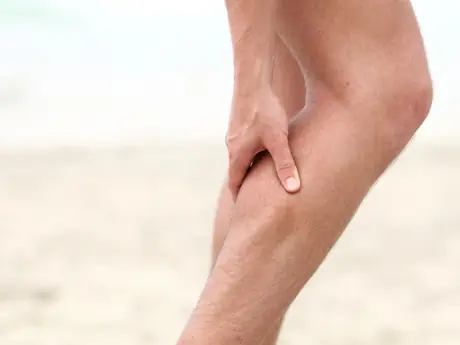But if you suffer an actual injury, like a muscle tear or a sprained ankle, it's time to stop running. A sharp or stabbing pain that only gets worse as you continue running means you're doing additional damage.
When you have to alter your running form to accommodate for a sharp pain, you're creating a limp and it's never a good idea to continue running through that type of excruciating pain.
It's better to have a DNF next to your name than to take months off because of a serious injury.
More: 4 Ways to Stay Positive Through Injuries
2. You Experience Hyponatremia
Much more common than dehydration in the marathon is hyponatremia. It's caused when levels of sodium in the blood drop to dangerous levels because too much water is ingested, and excessive water dilutes the body's normal sodium level.
More: Why Sodium-Potassium Balance Is Critical for Better Hydration
So, how do you know if you're suffering from hyponatremia? Most runners will experience some combination of nausea, vomiting, headache, dizziness and muscle cramps. In serious cases, too much water can enter the brain, causing swelling and in rare cases, death.
Hyponatremia occurs more commonly in slower runners (over five hours) who stop at every aid station for water. If you experience these symptoms, stop at an aid station along the course, and trained medical personnel can test you for this condition.
You can prevent hyponatremia easily by drinking to thirst, and not as much fluid as possible, and consuming a sports drink instead of water during the race. If you're able to determine your sweat rate during training, you'll be able to plan your fluid consumption more appropriately as well.
More: How Calculating Sweat Loss Can Boost Your Performance
Running is a safe, enjoyable sport with no risk of contact injuries. But there are small risks in any type of physical activity so you should be aware of these risks especially when running a marathon.
With the proper training and precautions, you'll finish happy, proud and maybe even with a new personal best.
More: 22 Essential Pieces of Marathon Training Advice
 Find and register for marathon races.
Find and register for marathon races.- 2
- of
- 2
About the Author

Get ACTIVE on the Go


Couch to 5K®
The best way to get new runners off the couch and across the finish line of their first 5K.
Available for iOS | Android






Discuss This Article